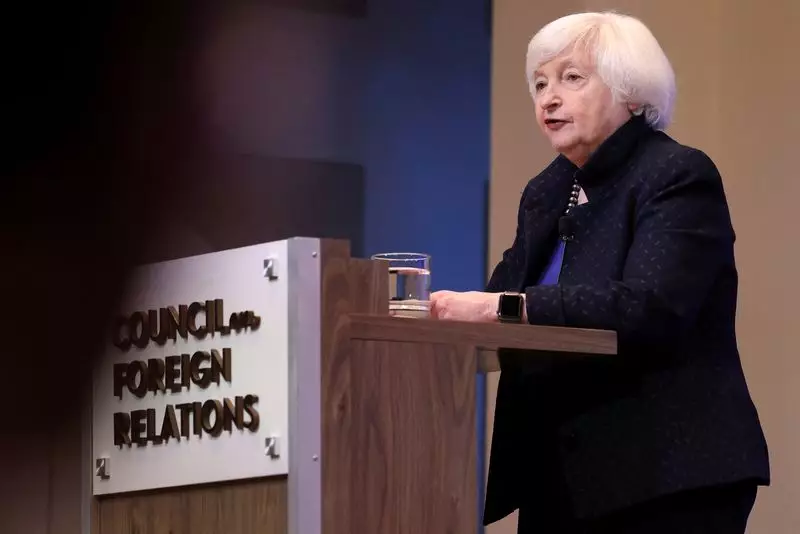In recent discussions surrounding the direction of U.S. economic policy, the notion of isolating the American economy from international trade has resurfaced, ignited largely by the rhetoric of prominent figures like Republican presidential candidate Donald Trump. U.S. Treasury Secretary Janet Yellen has sounded an alarm regarding this trend, characterizing it as profoundly shortsighted. The proposed move towards an insular economic strategy—marked by steep tariffs and diminished global trade relationships—poses significant risks not only to consumer prices but also to the competitive landscape for U.S. companies.
Yellen’s critique highlights a fundamental misunderstanding of how modern economies operate. In her upcoming address to the Council on Foreign Relations, she is poised to articulate a more nuanced view on economic interdependence. The inclination towards high tariffs, as championed by Trump, would likely lead to increased costs for American families, undermining the very goal of boosting domestic industry. Rather than protecting U.S. firms, excessive tariffs can inadvertently stifle innovation and efficiency by insulating companies from international competition.
One of the crucial aspects of Yellen’s message is the impact that sweeping tariffs would have on American consumers. The proposal to impose tariffs ranging from 10% to an alarming 200% on imports—especially those from China—would affect a vast array of goods, from electronics to agricultural products. This could lead to a dramatic rise in consumer prices, ultimately reducing disposable income and hampering living standards. The premise that tariffs serve as a cure-all for domestic manufacturing woes overlooks the complexity of global supply chains and the reality of international competition.
Moreover, it is essential to consider the long-term effects on U.S. businesses. When American firms are shielded from competition through tariffs, there is a decreased incentive to innovate or improve efficiencies. In contrast, participating in a global marketplace compels companies to enhance their offerings and optimize their operations to remain viable. Yellen’s emphasis on maintaining a level playing field underscores the necessity of engaging with international partners rather than erecting barriers that could lead to retaliatory measures and trade wars.
In her remarks, Yellen highlights the importance of fostering a balanced economic relationship with China. While acknowledging the need to address unfair trade practices, she stresses that trade and investment opportunities with China yield significant benefits for American workers and businesses. This perspective is crucial; engagement, rather than isolation, can produce mutual gains when grounded in fair practices.
However, the reality must not be ignored—the challenges posed by China’s aggressive industrial policies can create vulnerabilities for U.S. firms, particularly when it comes to supply chains. Barriers faced by American companies in the Chinese market need to be addressed through strategic negotiations rather than blanket tariffs that do little to resolve these underlying issues. In this context, Yellen’s call for a healthier relationship rooted in fairness resonates strongly.
Yellen also reinforces the Biden administration’s strategy, which includes carefully targeted tariffs on specific imports such as electric vehicles and semiconductors. This approach seeks to create leverage without unnecessarily punishing consumers or undermining domestic industries. Such targeted actions, particularly when in alignment with like-minded allies, can foster an international consensus that encourages China to reform its trade practices.
The potential for a united front among U.S. allies also amplifies the message to China that global standards are evolving. A collaborative approach, rather than singular measures grounded in isolationism, holds the potential to yield sustainable long-term benefits for all involved parties.
Ultimately, the discourse around trade must evolve away from harmful isolationist tendencies and toward a more inclusive, strategic framework. As Yellen aptly indicates, the key to advancing American economic interests lies not in erecting barriers but in building bridges across the global economy. Embracing a balanced stance that recognizes the complexities of international trade is critical in ensuring that U.S. consumers and businesses can thrive both today and in the future.

